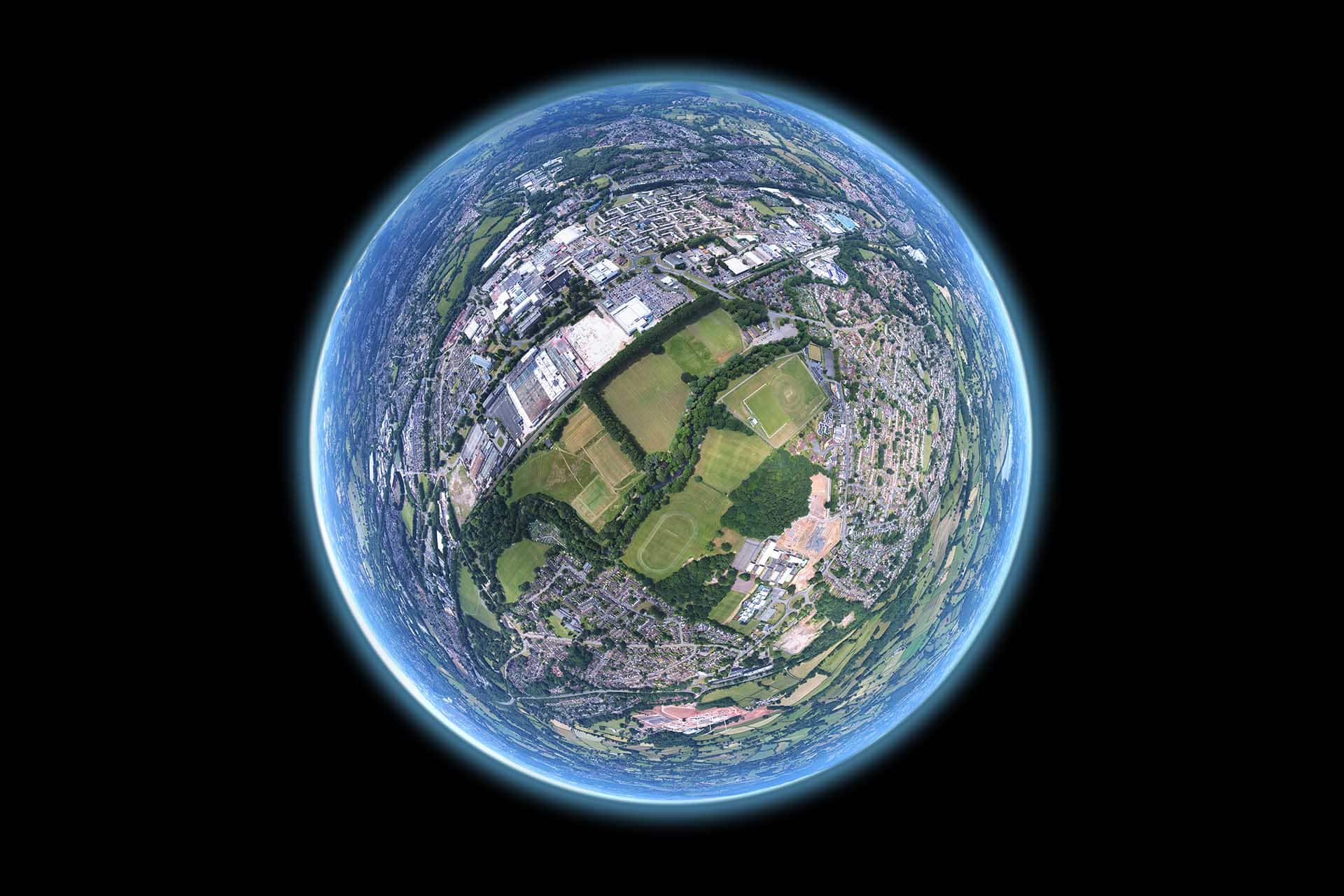Christmas, time of expectation
Christmas is considered the time of expectation. In our Christian tradition, we expect the one who is coming. In our present day, we rather expect a few days without stress in harmony, presents, finally some time with the whole family, a white Christmas and of course a peaceful celebration undisturbed by external factors, as we were used to for a long time. Quite a lot for a few days. Some people plan to do everything differently this time, less preparation stress, less consumption – and yet we notice that we are somehow stuck in the old patterns, not least because doing “everything differently” is also exhausting.
Advent, Advent – Christmas is coming
Also in this somewhat different year, the (pre-)Christmas season is full of expectations: For ourselves, for the employer, for the family, for politics, for our creative possibilities, for life itself, …
If I compare the Advent season with last year’s, little has changed in our (expectant) attitude. On the contrary, almost more than last year, we wish for the atmosphere of 2019 to return and are disappointed because it doesn’t happen. And so, alongside the already challenging expectation of the Christmas season as a harmonious, stress-free celebration, comes a list of expectations that have accumulated over the course of the year, and which are now once again brought into our consciousness with vehemence in the context of the turn of the year. The (social) media are a good mirror of this tendency.
Christmas (dis)illusions
Our many years of experience have taught us that somehow expectations and results often diverge at Christmas. Accordingly, we are disappointed because we had completely different ideas of a beautiful celebration. A clear case of disillusionment due to expectations that did not materialise – this year I am already observing it before Christmas. The once often reviled, now often longed for company Christmas party with colleagues is cancelled, Christmas markets close shortly after opening or don’t open at all, a family member is unvaccinated, the entry of relatives from afar is difficult or even impossible, and so this year, too, the festivities will probably be smaller for most of us.
And somehow paradoxically, a lot is still expected and intensively discussed, especially since the concrete settings are still unclear. We vacillate between hope and trepidation. This makes us tired and emotional at the same time. Blame is being apportioned because it is becoming clear that our expectations will not (or cannot) be fulfilled.
But this does not really bring us forward, i.e. into creative action. Instead of taking action and moving things forward, at least on a small scale, we remain stuck in our expectations, especially of others. This is not surprising, because the complexity of the questions neither allows for simple answers nor will solutions lie within our usual way of life (comfort zone). This overwhelms us and makes us afraid. I don’t know anyone who knows where the journey is going. This is unsettling, especially since many questions, such as those about health or the economic existence of one’s own business, are of an existential nature.
Traditional expectations
A typical strategy of dealing with such situations, which can be observed for centuries, is to rely on easy solutions and ignore upcoming changes. Christmas rites remain as they always were, economic activity will finally be the same in 2022 as it was in 2019 thanks to vaccination. It is simply a “break” from the normal – although the term break does not really fit, because the recovery effect does not occur. On the contrary, stress phenomena increase significantly, according to experts and also my own experience. My hypothesis: Holding on is just stressful.¹
Another typical human exit strategy is that we expect others to fix it for us. This expectation also does not prompt us to act. We are naturally disappointed and often even angry when others “fail” too. But the disillusionment associated with this does not seem to stimulate action, and we blame the problem on others.
Hardly anyone can escape this stagnation in non-action and clinging to the old, it at least gives one the feeling of not making mistakes and the old is well known. But this does not change the challenging situation.
Neuroscience provides clues as to what our good reasons are for such behaviour: Long-practised patterns are deeply anchored in the body, and changing them requires reflection and (movement) energy. This is lacking, because we are tangry. So we connect with like-minded people, our brains “love” resonance and coherence, and we find these where people have similar views. In such communities of like-minded people, a reality of our own often emerges.
Shared perseverance competence
We also know from neuroscience that 80% of our inner images of reality are created within ourselves. In many of these groups, reality is filtered according to the beliefs established there with the aim of close solidarity, and thus gradually a reality of its own is created that cannot be comprehended by other groups – this then goes so far that even fakenews appear credible. No human being is free from these tendencies. For example, it was only after I left a pharmaceutical company that I realised that there is a bee die-off that is possibly promoted by products of this company.
Others think that their influence on the situation is (too) small to change anything and see the problem with others. This is how bubbles are created and as long as we keep moving in the same circles, the bubbles are stabilised rather than questioned. Often, such bubbles are characterised by the fact that they want to preserve the old or that they do not strive for real conditions. Both are counterproductive for the ability to act.
Of course, these constructs are not sustainable in the long term; fear and insecurity are only temporarily masked by the security of the group. Perhaps this also explains, at least in part, the increasing anxiety disorders and depression that we can currently observe – as well as anger and aggression even in the Christmas season that is supposed to be peaceful.
Christmas in a different way
So what to do with all our expectations and the disappointments that come with them, especially at Christmas time? What to do with our desire to have a good time together and celebrate our rituals, finally coming to rest after this stressful time?
Well, maybe a look outside the box will help:
- We know from trauma care that felt powerlessness can be traumatising. Powerlessness can arise when we feel or are incapable of acting or moving.
- From the approach of agile working we know that with complex issues it is more effective to approach the new step by step.
- We know from social research that a prerequisite for action is perceived security.
- And from change management we know the importance of visions for upcoming, often necessary changes.
So what we need is a vision of Christmas that is reasonably realistic and can meet our expectations. In concrete terms, you can ask yourself, for example, what do I actually expect from Christmas? How do I feel then, and how can I achieve this state differently and under the given conditions? What images do I associate with this new state? The images that arise in this way need to be compared within the family, differences and similarities need to be identified, and thus a new and common image of the celebration needs to be created, the common expectation, so to speak.
What is needed now is a sense of security in order to put this into practice. In various contributions I have described how this can arise within². Another prerequisite is that the vision is attractive – please think of the Enterprise³. And now we can implement our Christmas in small steps. Not everything will work out as thought, but as with agile working, it is important to adapt our approach to changing conditions and perhaps even expectations. And so we suddenly and gradually design something new.
Ideas for implementation
There are some exciting questions about Christmas in this process:
- What might a new and contemporary form of contemplation look like?
- Which of our long-standing rituals are empty of meaning, can perhaps even be let go of?
- What emotions and expectations are behind my superficial expectations of the feast?
- Where are my own expectations ambivalent and in contradiction, how can I resolve or at least integrate this?
- What does Christmas actually mean to me and what makes it so important? How can I achieve it differently?
These are all questions that have a lot to do with the meaning of Christmas. And from my point of view, all we need are the competences that we regularly demand, promote and impart in everyday business life:
- First of all, the courage to change something.
- Then the humility to recognise that there are simply framework conditions that we cannot change and/or control.
- And at the same time the realisation that within these limits we can certainly act and thus shape things in a self-effective and self-responsible way.
Also helpful is our knowledge of the importance of moving things together, making resistance speak and not forgetting anyone. And last but not least, childlike curiosity, which plays a special role especially at Christmas by being open to our and other people’s expectations.
Merry Christmas
With this in mind, I wish everyone a reflective holiday season, during which one or two of us might reflect on or even try out what each of us can achieve in small ways and with joy. Many small things add up to a big change. And I wish everyone a celebration with many fulfilled expectations and shining eyes.
Notes:
[1] Letting go is the new way of planning
[2] The expectation management as well as in German the Fit for Digital Podcast: Umgang mit Unsicherheit
[3] What we can learn from starship Enterprise



